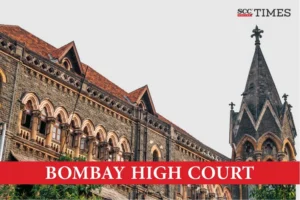Bombay High Court: The instant appeal filed by the convict, challenged the judgment and order of the Additional Sessions Judge, Khed-Rajgurunagar, Pune, (“Trial Court”) convicting him of offences under Sections 302 and 201 of the Penal Code, 1860 (“IPC”), and sentencing him to undergo rigorous imprisonment for life and fine, for the murder of his wife and younger son. The Division Bench of AS Gadkari* and Shyam C Chandak, JJ., noted that the two star witnesses of the prosecution had given inconsistent and contradictory testimonies with respect to the persons accompanying the convict and the deceased on the day of the incident. Therefore, affording the convict the benefit of doubt, and Court set aside the impugned judgment and order, and acquitted the convict on all charges, directing his immediate release from incarceration.
Background
The convict was accused of having killed his wife and infant son by his father-in-law (“PW-1”). PW-1 had also alleged that the convict used to beat his wife and suspected her fidelity after the birth of their second son (deceased).
On the day of the incident, the convict, along with his wife and two sons, was travelling to the PW-1 on their motorbike. PW-5, a shop owner at whose premises the convict had made a halt to refuel, deposed that he was travelling with a woman and ‘two boys’.
The minor daughter of the convict (5 years of age at the time of the incident) (“PW-10”) had deposed that she had accompanied her father, mother and deceased brother on a motorbike and that her father had killed her mother and brother with a stone.
The convict contended that he had been falsely implicated by PW-1 and aggrieved by the impugned judgment and order of the Sessions Court, appealed before the instant Court.
Court’s analysis and judgment
The Court noted that the prosecution case is based on circumstantial and ocular evidence, and that PW-5 and P-10 (minor daughter of the convict) were the star witnesses of the prosecution case.
PW-5 deposed that one person, one woman along with ‘two boys’ came at her shop and identified the appellant as the person who had come to her shop on the day of incident.
The Court took note of PW-10’s cross-examination where in she admitted that she, her surviving elder brother, her grandmother, and the convict were at home and that her mother and deceased brother did not return home. Thereafter, her grandfather had the convict arrested by the police.
The Court therefore concluded that there was a major inconsistency in respect of the persons accompanying the convict on the alleged fateful day, since the two star witnesses of the prosecution deposed different members accompanying the convict.
The Court further highlighted that the prosecution had not answered that if the convict was travelling with both his sons and wife, then having committed the murder of the deceased, where did he leave his elder son? Alternatively, the Court also posed the question that if the daughter had accompanied the convict and the deceased, and was also the eyewitness to the crime, then who saw them coming home together?
The Court suspected that either PW-5 was not stating the entire truth, or she was a chance witness to connect the link of chain of circumstances to support the theory of ‘last seen together’. As for PW-10, the Court stated that it doubted that she was present at the scene of crime.
The Court stated that PW-10’s testimony inspired confidence in the mind of the Court however, PW-5’s testimony created doubt. The Court also noted that PW-10 deposed the absolute truth before the Court and had denied that she was tutored by PW-1.
Therefore, the Court emphasised on the settled position that when two views are possible to a case, then the one that is favours the accused must be adopted. Hence, the Court opined that the convict deserved to receive a benefit of doubt, and setting aside the impugned judgment and order, held that the convict be acquitted of all the charges framed against him, and released from imprisonment with immediate effect.
[Mohan v. State of Maharashtra, 2024 SCC OnLine Bom 1625, decided on 11-06-2024]
*Judgment authored by: Justice AS Gadkari
Advocates who appeared in this case :
For the appellant: Uday P Warunjikar, Aditya Kharkar, Advocate
For the respondent: JP Yagnik, Additional Public Prosecutor

